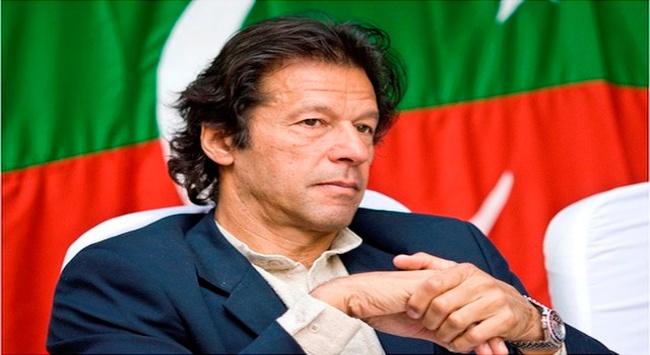Pakistan’s Deepening Political Impasse:
The Breakdown of Government-PTI Talks
Imran Ahmed, Muhammad Saad Ul Haque
18 February 2025Summary
The breakdown of negotiations between the ruling coalition and Pakistan Tehreek-e-Insaf has reinforced a political deadlock. This impasse has heightened political instability and deepened divisions between the government and the opposition. The inability to reach a compromise reflects deeper structural challenges in Pakistan’s political system.
On 31 January 2025, the ruling coalition, led by the Pakistan Muslim League (PML-N), announced the conclusion of negotiations with the main opposition party, Pakistan Tehreek-e-Insaf (PTI), which had been going on for several weeks. This decision followed the PTI’s rejection of Prime Minister Shehbaz Sharif’s offer to resume talks after the party had previously withdrawn from the dialogue process.
The chain of events dates back to early December 2024 when imprisoned party leader and former prime minister, Imran Khan, publicly stated that the PTI was willing to engage in political dialogue with ‘anyone’. Following this, Leader of the Opposition in the National Assembly and PTI party leader, Omar Ayub Khan, announced that Khan had established a five-member committee to lead the negotiations. The committee included Ayub, former Speaker of the National Assembly Asad Qaiser, PTI General Secretary Salman Akram Raja, Khyber Pakhtunkhwa Chief Minister Ali Amin Khan Gandapur and Sunni Ittehad Council Chairman Sahibzada Hamid Raza.
At the same time, on the recommendation of National Assembly Speaker Ayaz Sadiq, Sharif formed a committee for the ruling coalition. This committee included several prominent members of the coalition, such as Deputy Prime Minister and Foreign Minister Ishaq Dar, the Prime Minister’s political aide Rana Sanaullah, Federal Minister for Privatisation Aleem Khan and Pakistan People’s Party (PPP) leaders Raja Parvez Ashraf and Naveed Qamar.
The first round of negotiations took place on 20 December 2024 and was chaired by Ayaz Sadiq. The PTI was upfront about its demands, which included the immediate release of party leaders, the resumption of communication with Khan and the establishment of a judicial commission to investigate the events of 9 May 2023. Speaking after the talks, Qaiser stated that the government had given the assurance that it would make arrangements for further meetings with Khan.
Before the next meeting, Raza announced that 31 January 2025 had been set as the deadline for talks with the government. Speaking to the media, he said, “The PTI is giving the government until the end of January to conclude the dialogue aimed at reducing political tensions. The party’s negotiation team will formally inform the government committee about this deadline at our meeting on January 2”. He added that Khan was ready to forgive all previous ‘atrocities’ committed by authorities while reemphasising that they “…categorically reject responsibility for the events of 9 May 2023” and for the formation of judicial commissions to investigate the incidents of 9 May 2023 and 26 November 2024.
The second round of talks was held on 2 January 2025. Senator Irfan Siddiqui, a member of the committee, emphasised that very little progress had been made during the two meetings and that uncertainty regarding the contents of the proposed written charter of demands was creating obstacles. Qaiser, speaking on behalf of the PTI negotiators, attributed the lack of progress to the government’s failure to provide “uninterrupted access” to Khan. Qaiser added that “Only Imran Khan will make the decisions”, and that “If he has any reservations about the negotiations and distances himself from them, they no longer matter”.
A day before Khan’s court ruling in a land corruption case, the PTI finally presented its written charter of demands to the government on 16 January 2025, with the government expected to respond within seven working days. However, just 24 hours later, Khan was sentenced to 14 years’ imprisonment on charges of misuse of authority and corruption. While there was initial optimism that the political dialogue might offer some respite for Khan from his sentencing, this did not materialise, and the ruling coalition threatened to derail all progress.
Less than a week later, PTI Chairman Barrister Gohar Ali Khan announced that Khan had decided to end negotiations with the government. He cited the government’s refusal to establish a judicial commission as the principal cause and added that the government showed an overall unwillingness to cooperate with them during negotiations.
These developments have left the PTI and the ruling coalition at a deadlock. Amid the fallout, Khan allegedly wrote a letter outlining his grievances to both the Chief of Army, General Asim Munir, Chief Justice Yahya Afridi and Justice Aminuddin Khan, further fuelling the opposition’s fervour. The existence of these letters has been categorically denied by state security services.
If genuine, the letters would signal an attempt by Khan to appeal directly to both the military and the judiciary. The prospect of Khan seeking intervention from these quarters has become a point of contention, adding to the political uncertainty. Whether it is seen as a necessary step in response to his legal troubles or as conflicting with the PTI’s previous stance on institutional authority, it has further complicated the ongoing deadlock. The government’s firm denial of the letters’ existence has only added to the uncertainty and raised questions about whether they were fabricated, leaked strategically or simply misinterpreted.
. . . . .
Dr Imran Ahmed is a Research Fellow at the Institute of South Asian Studies (ISAS), an autonomous research institute in the National University of Singapore (NUS). He can be contacted at iahmed@nus.edu.sg. Mr Muhammad Saad Ul Haque is a Research Analyst at the same institute. He can be contacted at msaaduh@nus.edu.sg. The authors bear full responsibility for the facts cited and opinions expressed in this paper.
Pic Credit: Wikimedia Commons
-
 More From :
More From :
-
 Tags :
Tags :
-
 Download PDF
Download PDF


